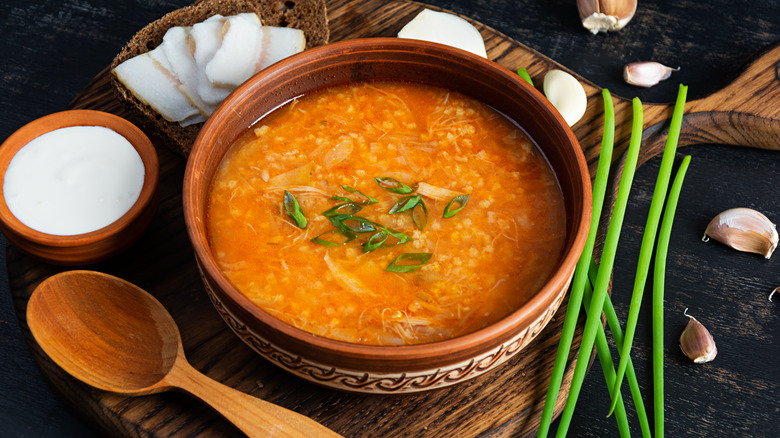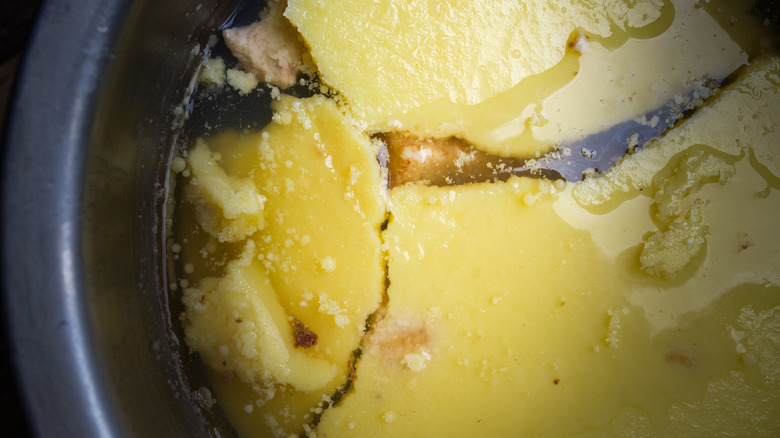Remove Extra Fat From Soup Broth With The Help Of Your Fridge
Since soup is essentially made from a bunch of different ingredients dumped or blended together, it can be tough to tell how much fat makes it into your bowl. Whether you're making French onion soup or old-fashioned beef stew, a little fat is necessary to cook your meat and veggies and to distribute flavor across your pot. But going overboard can lead to an oily mouthfeel and a heavy broth. So if you've already loaded your soup up with too much fat, the best way to get rid of it involves your fridge.
If you've ever refrigerated the grease leftover from browning meat to avoid pouring oil down the drain, you know that it's the easiest way to turn your fat from a liquid to a solid. To do the same with your broth, you'll need to allow up to eight hours of refrigeration time, or ideally an entire night — but after that, you should be able to easily skim the solid layer of fat off the top of your soup with a spoon. During their time in the fridge, the oils will rise to the surface of your container because they have less gravity than water, and you'll see them convene in a white layer on the top.
Other ways to remove excess fat from your soup
Before you pop your soup in the fridge, let it cool down to room temperature. Then you can either transfer it to an airtight container in the fridge or cover it in plastic wrap first. The next morning, simply throw away your scooped-out layer of fat in the trash. If you're only working with a small amount of broth and no chunks of meat or veggies, you can also transfer it to a zip-top bag that goes in the fridge — then when the fat rises to the top, cut off a corner of the bag and let the broth pour out. If you don't have tons of fat to get rid of, you can also try the ice cube method, which involves adding a cube to a cooled-down pot of soup. When the fats rush to stick to the ice, you can remove them all easily in one big spoonful.
Before you get to this point, there are a few things you can do to make excess fat removal an easier process. Avoid boiling your soup, not only because it can lead to mushy veggies and tough meat, but because it mixes the fat into the broth more thoroughly. And if you have the patience, you can use a sieve to scoop away bits of fat while your soup simmers. But if you're already past this point, simply stick your pot in the fridge to let the oils harden.

